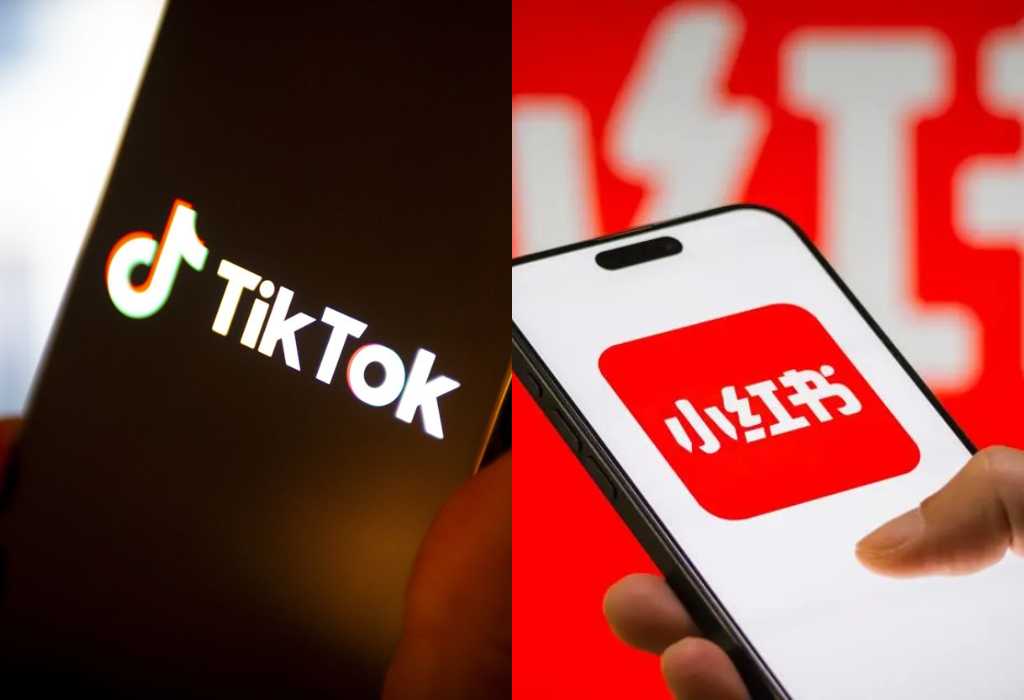By The Malketeer
TikTok’s Ban: Can Trump Save the App That Defined a Generation?
As TikTok faces the threat of an abrupt ban in the United States this Sunday, the stakes couldn’t be higher for the app that redefined short-form video content and reshaped the social media landscape.
But with an unprecedented move to shut off access looming, TikTok is fighting back in a way that only it can—by rallying its 150 million-strong U.S. user base to act as its loudest advocates.
When Users Become Lobbyists: TikTok’s Strategy for Survival
TikTok’s call to arms isn’t new.
Back when legislation to force a sale of the app was first introduced, the platform urged its users to contact their representatives and protest the proposed restrictions.
While the initial lobbying push didn’t yield the desired results, TikTok’s user base is again stepping into the advocacy ring.
This time, the stakes are existential.
Users have already begun protesting the potential ban by signing up for RedNote, a Chinese-owned app positioning itself as a TikTok alternative.
This migration highlights a deeper concern: will TikTok’s digital diaspora remain loyal if the platform disappears?
The Rise of RedNote: Can It Replace TikTok?
RedNote’s sudden popularity underscores the chaos surrounding TikTok’s uncertain future.
But is this app truly poised to fill the void?
Skeptics point out that while RedNote may gain traction during TikTok’s turmoil, its longevity is far from guaranteed.
New platforms often struggle to maintain momentum once the initial buzz fades, and RedNote could face the same regulatory scrutiny that TikTok is currently battling.
Meanwhile, TikTok’s competitors—Meta’s Instagram Reels and YouTube Shorts—stand ready to absorb displaced creators and ad dollars.
While RedNote may be the shiny new toy, Meta and YouTube offer something it cannot: established ecosystems and massive global audiences.
Meta and YouTube Stand to Gain Big, But Will TikTok Fans Follow?
Industry analysts are already calculating where TikTok’s lucrative ad dollars—projected to reach US$18 billion globally this year—might land if the app is banned.
The biggest beneficiaries are likely to be Meta and YouTube.
Yet, both platforms lack the cultural clout that TikTok has cultivated, leaving an undeniable gap in the social media universe.
Enter President-elect Donald Trump, who may ironically become TikTok’s most unlikely ally.
Reports suggest the former president is keen to position himself as the app’s savior, and with TikTok’s CEO reportedly attending his upcoming swearing-in ceremony, the narrative is rich with political intrigue.
Trump, who has previously called TikTok a “threat to national security,” could leverage user outcry to push for a last-minute reprieve.
But will his support last?
TikTok is playing a high-stakes game, banking on its users’ devotion and Trump’s political maneuvering to avoid what could be a catastrophic shutdown.
However, as history shows, the survival of social media platforms often hinges on their ability to navigate the intersection of technology, politics, and public sentiment.
One thing is clear: whether TikTok survives or not, its potential absence will forever change the social media landscape, creating opportunities for some and leaving others wondering what could have been.
For now, the question remains: Can TikTok’s biggest lifeline outlast the chaos?
MARKETING Magazine is not responsible for the content of external sites.
source
